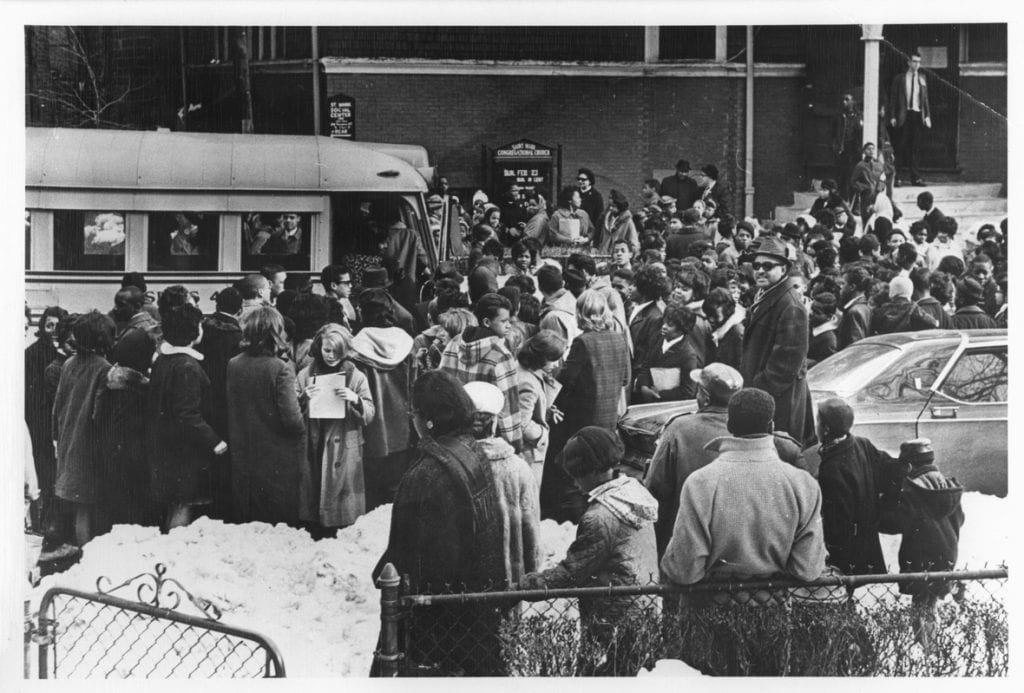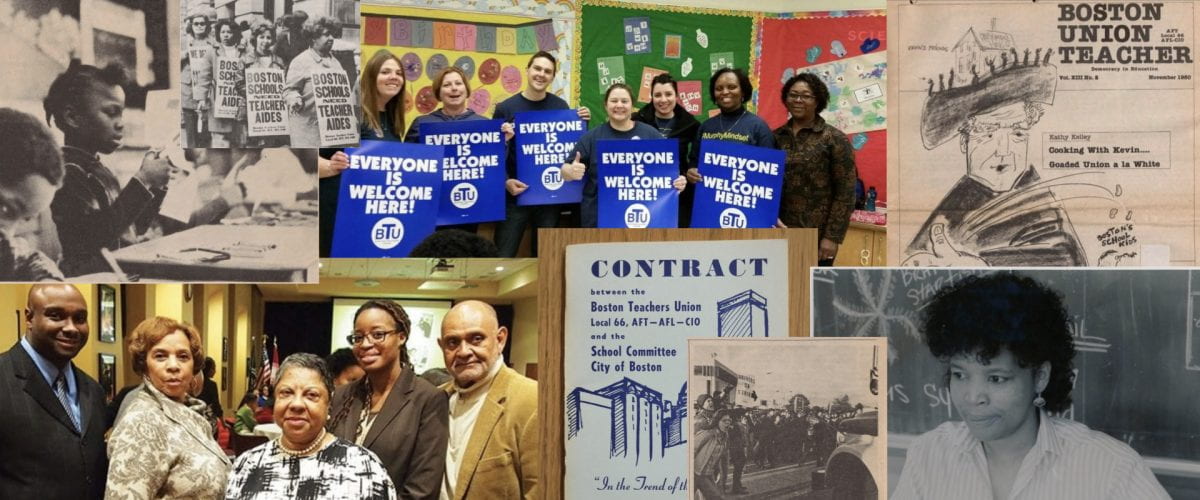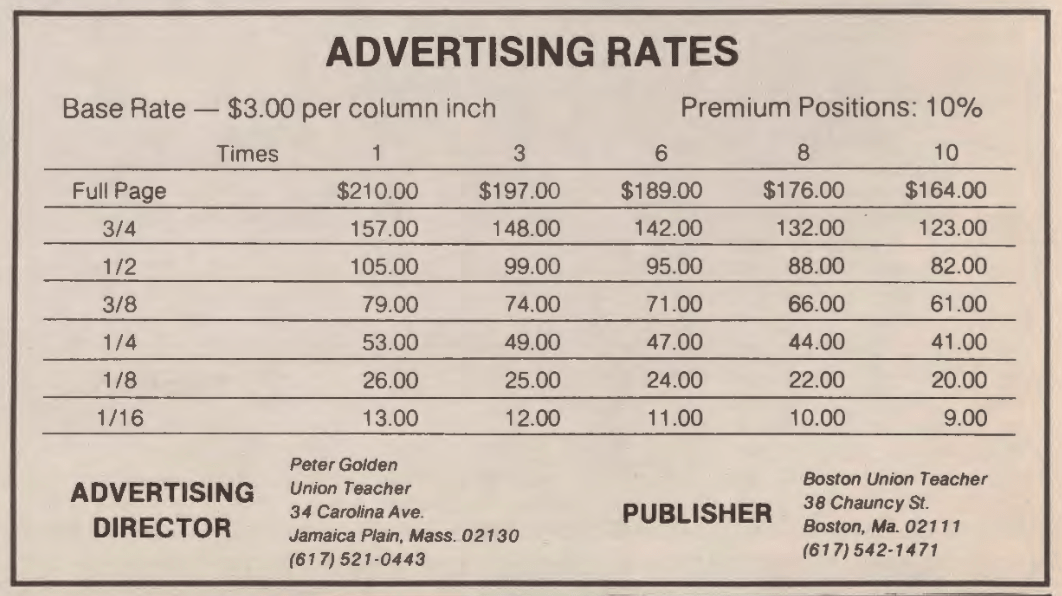Hello! My name is Kayla Allen and I am a second-year history graduate student studying archival studies and public history at UMass Boston. I took Nick Juravich’s course, HIST 682: Topics in American History, Digital Public History: Teacher Organizing in Boston, as a way to expand upon my understanding of public history work and learn more about the ways that public historians are connecting with audiences through digital means. I was also intrigued by the topic of teacher organizing in Boston, as I had worked in the education field for years myself and was a member of the Milwaukee Teachers’ Education Association–the teachers’ union in Milwaukee, Wisconsin–when I worked as a paraprofessional in a Milwaukee public high school.
When faced with the question of what I might want to make an exhibit on, I felt unsure. I had been doing a lot of historical interpretation in previous coursework, and I was feeling a bit like I wanted to try something new and different. When Professor Juravich gave us the option to create a research guide (or LibGuide) for the collection, I felt that was a perfect opportunity to not only gain new experience but also to learn more about what I might do as an archivist in the future.
LibGuides are essentially a series of connected web pages that give information and list resources about a specific topic. For example, one of the guides we used as inspiration for our work was the guide titled “Primary Sources for Online Learning” created by Jessica Holden, reference archivist at the University Archives and Special Collections (UASC) in the Healey Library at UMass Boston. This research guide gives explanations for how to do primary source research online, provides links to possible sources, and even offers exercises in primary source research that students can do as practice.

Evan and I decided on what we were going to include in our LibGuide. We wanted to have a page dedicated to the BTU and all related collections at the UASC, one discussing the exhibit and blog-work done by ourselves and our peers in class, and one elaborating on outside sources that researchers might find helpful if they want more information on related topics. My favorite part of assembling the LibGuide was curating the images. I loved going through different sources, finding potential images for the guide (like for banners or other decoration), and then editing them to make sure they worked for the visual space. I wanted to make sure that the guide not only had engaging content but was aesthetically pleasing and interesting to look at. I wanted it to be dynamic. The image I most loved working with was Freedom School- St. Marks Social Center- Roxbury, an asset from the Northeastern University Library Beyond Busing: Boston School Desegregation Archival Resources. This photograph depicts the February 26, 1964 boycott of Boston Public Schools in protest of segregation. In the image, protestors, young and old, Black and white, gathered outside of the St. Marks Freedom School, sang, and listened to speeches. I was particularly drawn to it because of the demographics of the crowd, particularly the children. It was a significant reminder that this whole fight was for our children to get the education they deserve. I decided to incorporate this asset as the banner for our page about external collections related to the BTU and Boston Public Schools.

One of the last things Evan and I needed to do with our research guide was present it at the launch event. Each of us chose two of the web pages to present, and we discussed the logistics of creating the guide with our audience. After presenting, we got feedback from Professor Juravich, Jessica Holden, and Jessica Colati, director of the archives program at UMB, and updated the guide based on their feedback. Mostly, we just needed to change some lettering/wording and add more information about resources that can help researchers. This guide might need to be a living document, updated by future students working on this topic. There is so much potential for the knowledge and scholarship that this resource can help build.
If you would like to check out the work we did or learn more about the issues that have plagued our country’s public school systems, please check out our LibGuide: Boston Teachers Union Collection.


